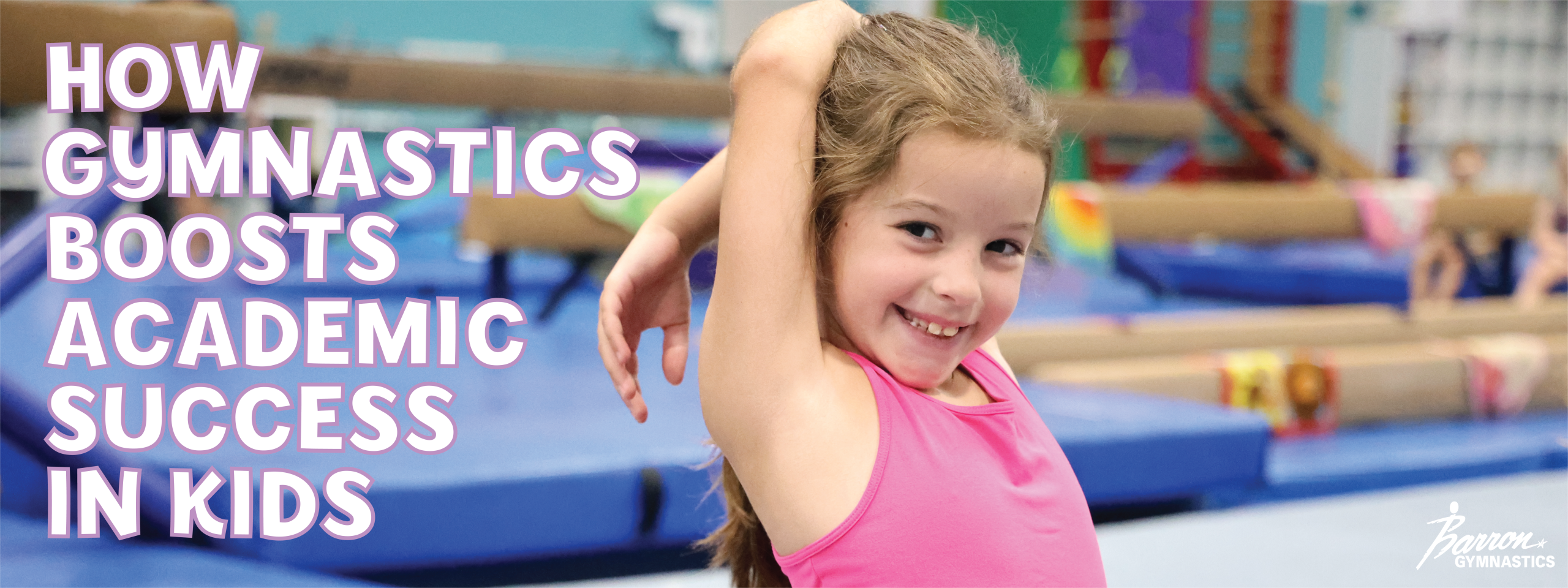When most people think of gymnastics, they imagine flips, balance beams, and incredible flexibility. But what many don’t realize is that gymnastics offers more than just physical benefits—it can also play a powerful role in a child’s academic success. From improved focus to enhanced memory, gymnastics helps lay the groundwork for better performance in the classroom.
- Physical Activity Improves Brain Function
Physical movement is closely linked to brain development. Research shows that regular exercise increases blood flow to the brain, improving cognitive functions such as concentration, problem-solving, and memory. Gymnastics, with its emphasis on coordination and body awareness, is especially effective in stimulating neural pathways. This helps children retain information more easily and focus better during lessons.
- Better Focus and Self-Discipline
Gymnastics teaches children how to listen, follow instructions, and stay focused—all essential skills for success in school. In the gym, kids must concentrate on routines, techniques, and safety, which naturally builds self-discipline. These habits often carry over to the classroom, where students who do gymnastics are better able to stay on task and complete assignments.
- Improved Confidence and Resilience
Every time a child learns a new gymnastics skill, they’re building confidence. Whether it’s mastering a cartwheel or holding a handstand, these small victories reinforce a child’s belief in their own ability to learn and improve. This self-confidence can reduce anxiety around schoolwork and encourage a “growth mindset,” where children believe that effort leads to success.
- Stronger Social Skills
Gymnastics classes often involve group instruction, where children must work with others, take turns, and respect their coaches and peers. These social skills are directly applicable in school environments, where teamwork and communication are essential. Kids who are comfortable interacting with others are more likely to participate in class and collaborate effectively.
- Healthy Habits Support Learning
Kids who participate in gymnastics often develop healthier routines, including better sleep habits and nutrition. These healthy habits positively influence energy levels and mood, both of which impact academic performance. A well-rested, active child is more likely to come to school alert and ready to learn.
- Motor Skills and Coordination Aid Early Learning
Especially in younger children, strong motor skills are linked to early reading and writing development. Activities that improve balance, coordination, and spatial awareness—like those in gymnastics—help support fine motor development. This can make it easier for children to learn to write, use scissors, or engage in other school-related tasks.
Conclusion: A Well-Rounded Approach to Learning
Gymnastics isn’t just about physical strength or flexibility—it’s a holistic activity that nurtures both the body and mind. For children, participating in gymnastics can lead to noticeable improvements in focus, discipline, and confidence, all of which translate to better performance in school. So the next time you’re thinking about how to support your child’s academic success, consider enrolling them in gymnastics—it might just be the boost they need.

